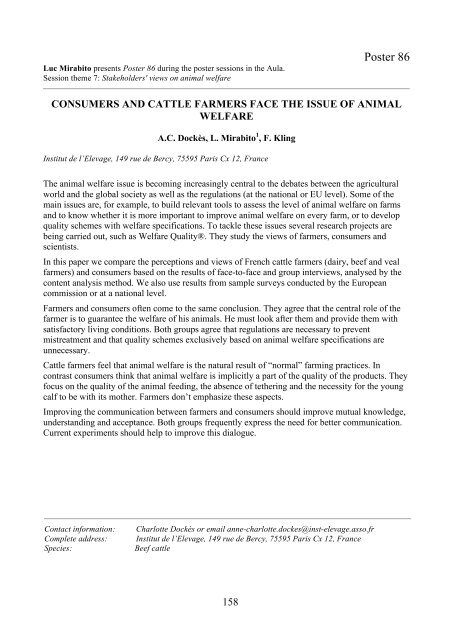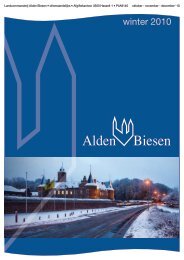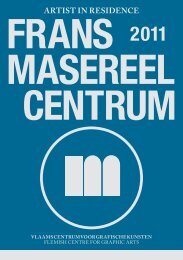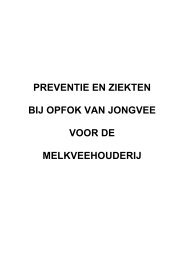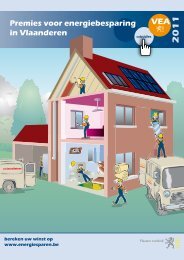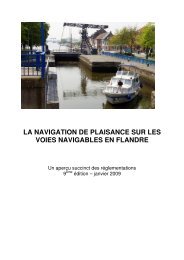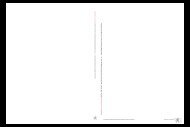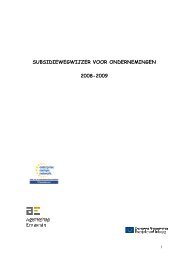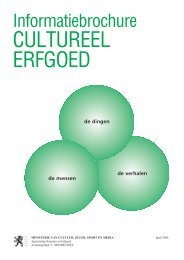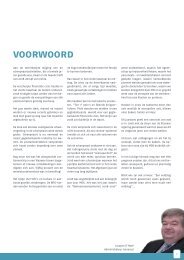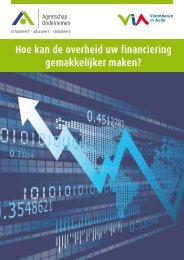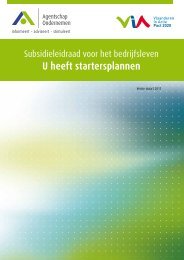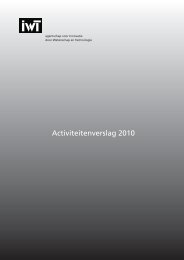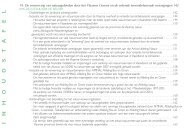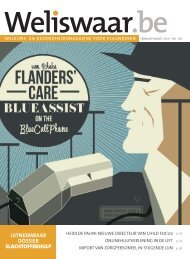Acknowledgements Book of abstracts - Publicaties - Vlaanderen.be
Acknowledgements Book of abstracts - Publicaties - Vlaanderen.be
Acknowledgements Book of abstracts - Publicaties - Vlaanderen.be
You also want an ePaper? Increase the reach of your titles
YUMPU automatically turns print PDFs into web optimized ePapers that Google loves.
Luc Mirabito presents Poster 86 during the poster sessions in the Aula.<br />
Session theme 7: Stakeholders' views on animal welfare<br />
158<br />
Poster 86<br />
CONSUMERS AND CATTLE FARMERS FACE THE ISSUE OF ANIMAL<br />
WELFARE<br />
A.C. Dockès, L. Mirabito 1 , F. Kling<br />
Institut de l’Elevage, 149 rue de Bercy, 75595 Paris Cx 12, France<br />
The animal welfare issue is <strong>be</strong>coming increasingly central to the debates <strong>be</strong>tween the agricultural<br />
world and the global society as well as the regulations (at the national or EU level). Some <strong>of</strong> the<br />
main issues are, for example, to build relevant tools to assess the level <strong>of</strong> animal welfare on farms<br />
and to know whether it is more important to improve animal welfare on every farm, or to develop<br />
quality schemes with welfare specifications. To tackle these issues several research projects are<br />
<strong>be</strong>ing carried out, such as Welfare Quality®. They study the views <strong>of</strong> farmers, consumers and<br />
scientists.<br />
In this paper we compare the perceptions and views <strong>of</strong> French cattle farmers (dairy, <strong>be</strong>ef and veal<br />
farmers) and consumers based on the results <strong>of</strong> face-to-face and group interviews, analysed by the<br />
content analysis method. We also use results from sample surveys conducted by the European<br />
commission or at a national level.<br />
Farmers and consumers <strong>of</strong>ten come to the same conclusion. They agree that the central role <strong>of</strong> the<br />
farmer is to guarantee the welfare <strong>of</strong> his animals. He must look after them and provide them with<br />
satisfactory living conditions. Both groups agree that regulations are necessary to prevent<br />
mistreatment and that quality schemes exclusively based on animal welfare specifications are<br />
unnecessary.<br />
Cattle farmers feel that animal welfare is the natural result <strong>of</strong> “normal” farming practices. In<br />
contrast consumers think that animal welfare is implicitly a part <strong>of</strong> the quality <strong>of</strong> the products. They<br />
focus on the quality <strong>of</strong> the animal feeding, the absence <strong>of</strong> tethering and the necessity for the young<br />
calf to <strong>be</strong> with its mother. Farmers don’t emphasize these aspects.<br />
Improving the communication <strong>be</strong>tween farmers and consumers should improve mutual knowledge,<br />
understanding and acceptance. Both groups frequently express the need for <strong>be</strong>tter communication.<br />
Current experiments should help to improve this dialogue.<br />
Contact information: Charlotte Dockès or email anne-charlotte.dockes@inst-elevage.asso.fr<br />
Complete address: Institut de l’Elevage, 149 rue de Bercy, 75595 Paris Cx 12, France<br />
Species: Beef cattle


